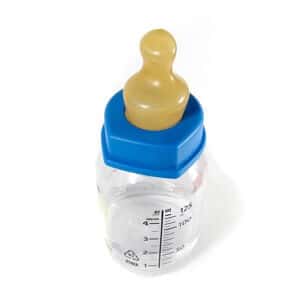
Consumer demand has led many plastics makers to remove bisphenol A (BPA) from baby bottles and other containers. BPA is an endocrine disruptor that mimics the action of estrogen.
Scientists have worried that the compounds used instead of BPA might also carry some risks, but until recently those chemicals had not been tested. Canadian researchers have now found that one common substitute, bisphenol S, has similar negative effects on brain development in zebrafish as BPA. The study showed that the fish embryos exposed to very low doses of bisphenol S grew excess neurons and exhibited hyperactive behavior as adults.
The possible effects on humans can’t be directly extrapolated from the fish research, but the need for more studies is clear.
The investigators suggest that pregnant women take the precaution of limiting their exposure to products that contain any type of bisphenol. The findings were published in the Proceedings of the National Academy of Sciences.

